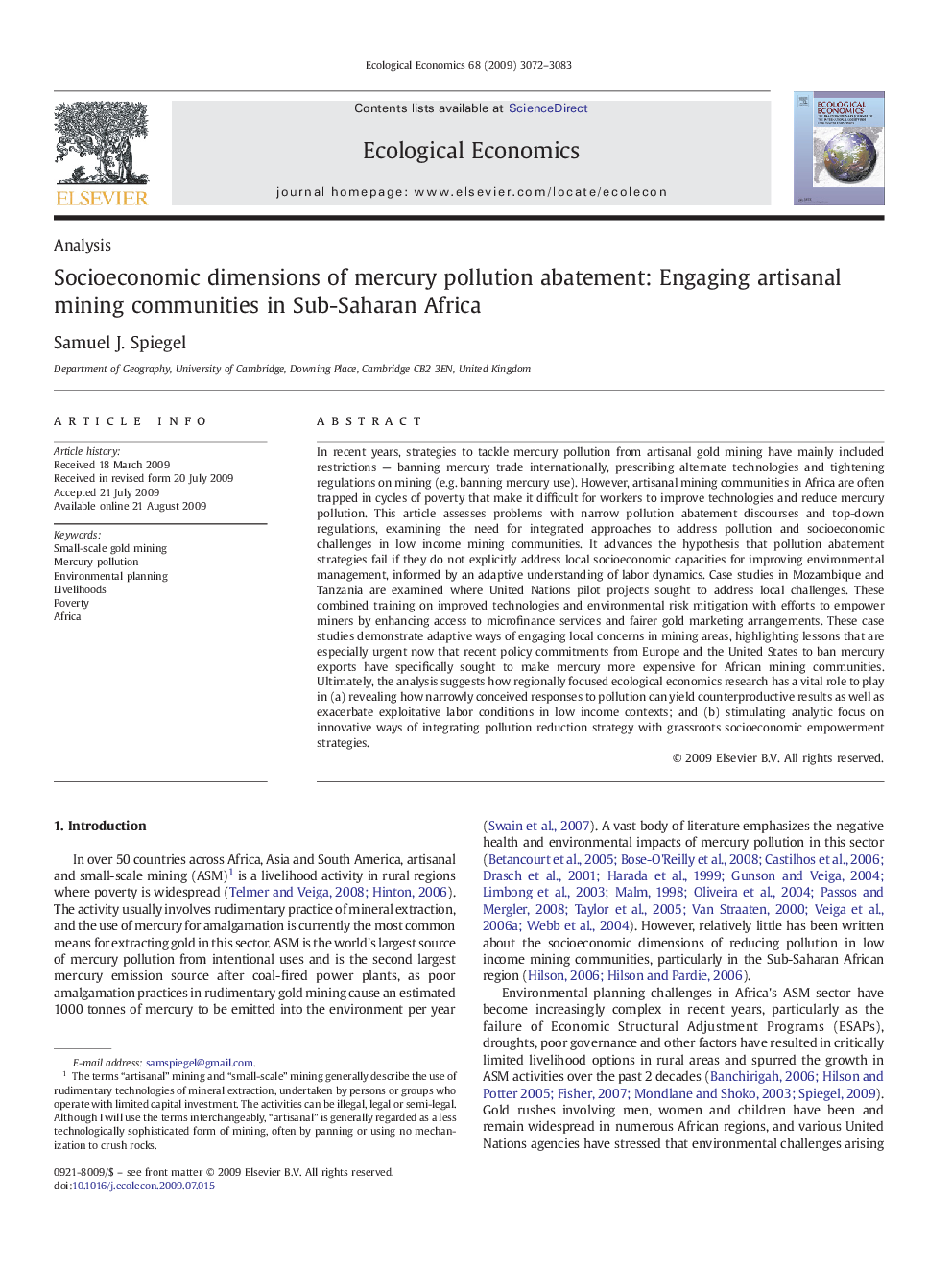| کد مقاله | کد نشریه | سال انتشار | مقاله انگلیسی | نسخه تمام متن |
|---|---|---|---|---|
| 5051217 | 1371116 | 2009 | 12 صفحه PDF | دانلود رایگان |

In recent years, strategies to tackle mercury pollution from artisanal gold mining have mainly included restrictions - banning mercury trade internationally, prescribing alternate technologies and tightening regulations on mining (e.g. banning mercury use). However, artisanal mining communities in Africa are often trapped in cycles of poverty that make it difficult for workers to improve technologies and reduce mercury pollution. This article assesses problems with narrow pollution abatement discourses and top-down regulations, examining the need for integrated approaches to address pollution and socioeconomic challenges in low income mining communities. It advances the hypothesis that pollution abatement strategies fail if they do not explicitly address local socioeconomic capacities for improving environmental management, informed by an adaptive understanding of labor dynamics. Case studies in Mozambique and Tanzania are examined where United Nations pilot projects sought to address local challenges. These combined training on improved technologies and environmental risk mitigation with efforts to empower miners by enhancing access to microfinance services and fairer gold marketing arrangements. These case studies demonstrate adaptive ways of engaging local concerns in mining areas, highlighting lessons that are especially urgent now that recent policy commitments from Europe and the United States to ban mercury exports have specifically sought to make mercury more expensive for African mining communities. Ultimately, the analysis suggests how regionally focused ecological economics research has a vital role to play in (a) revealing how narrowly conceived responses to pollution can yield counterproductive results as well as exacerbate exploitative labor conditions in low income contexts; and (b) stimulating analytic focus on innovative ways of integrating pollution reduction strategy with grassroots socioeconomic empowerment strategies.
Journal: Ecological Economics - Volume 68, Issue 12, 15 October 2009, Pages 3072-3083